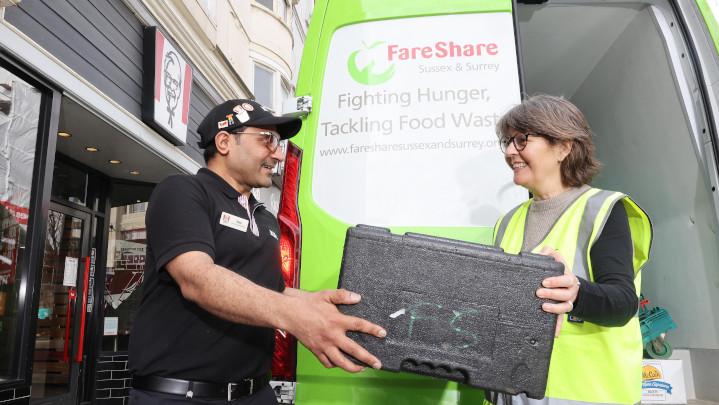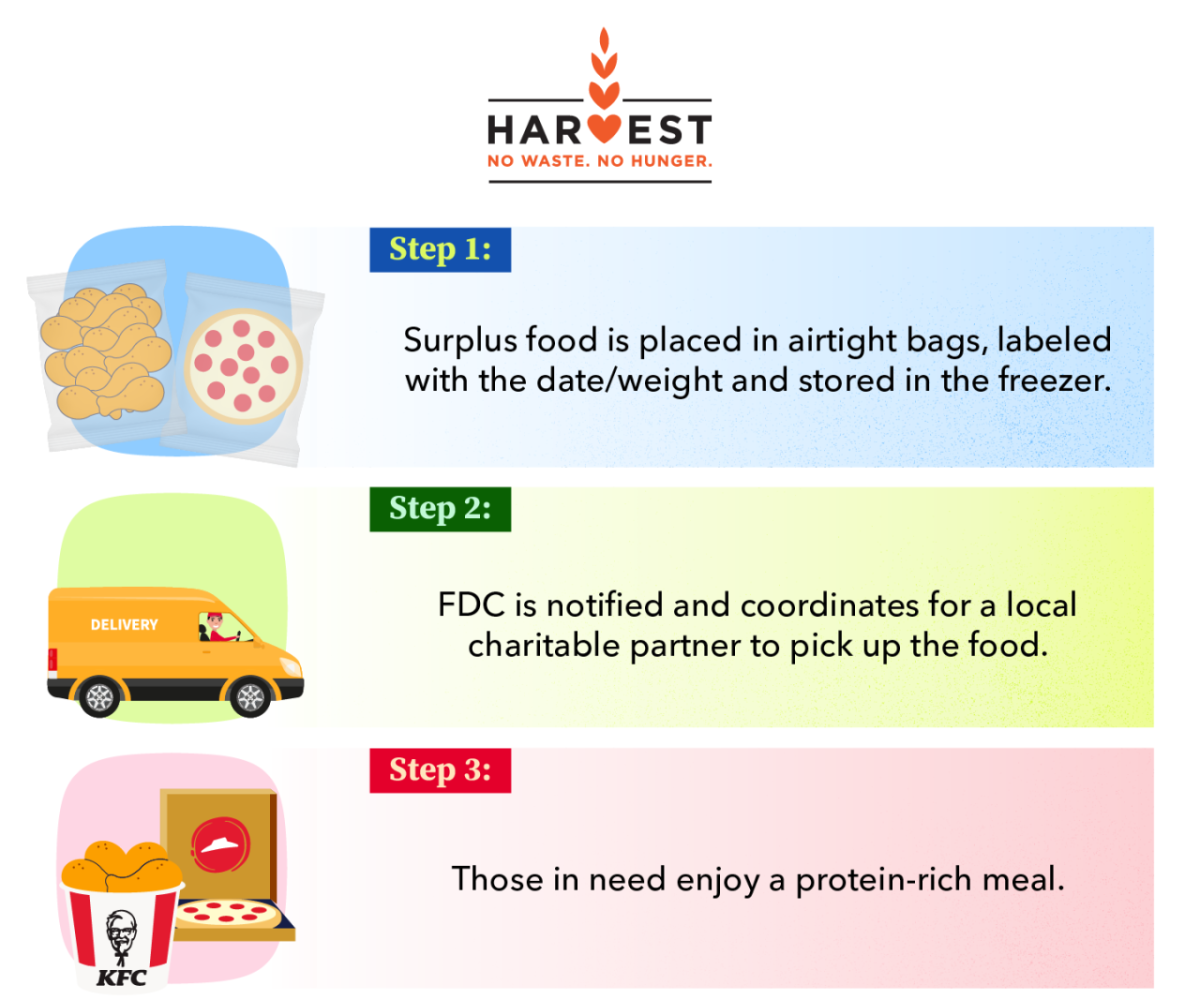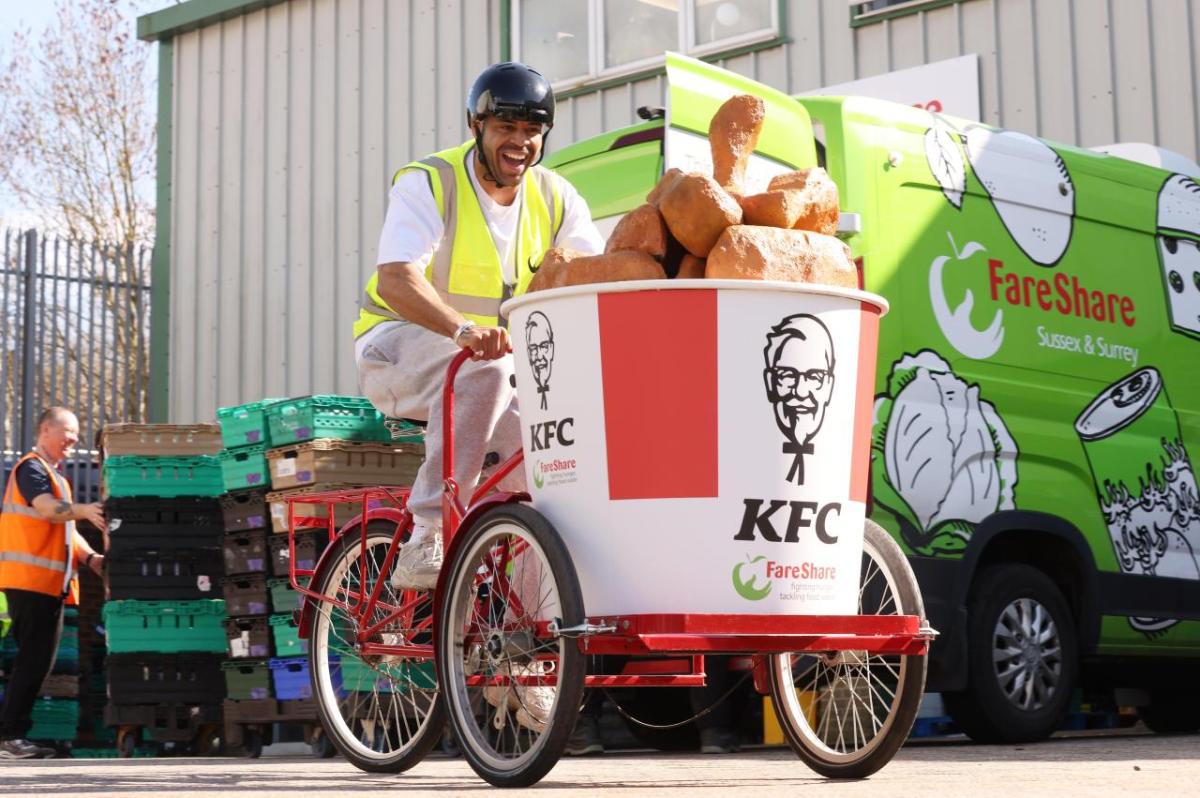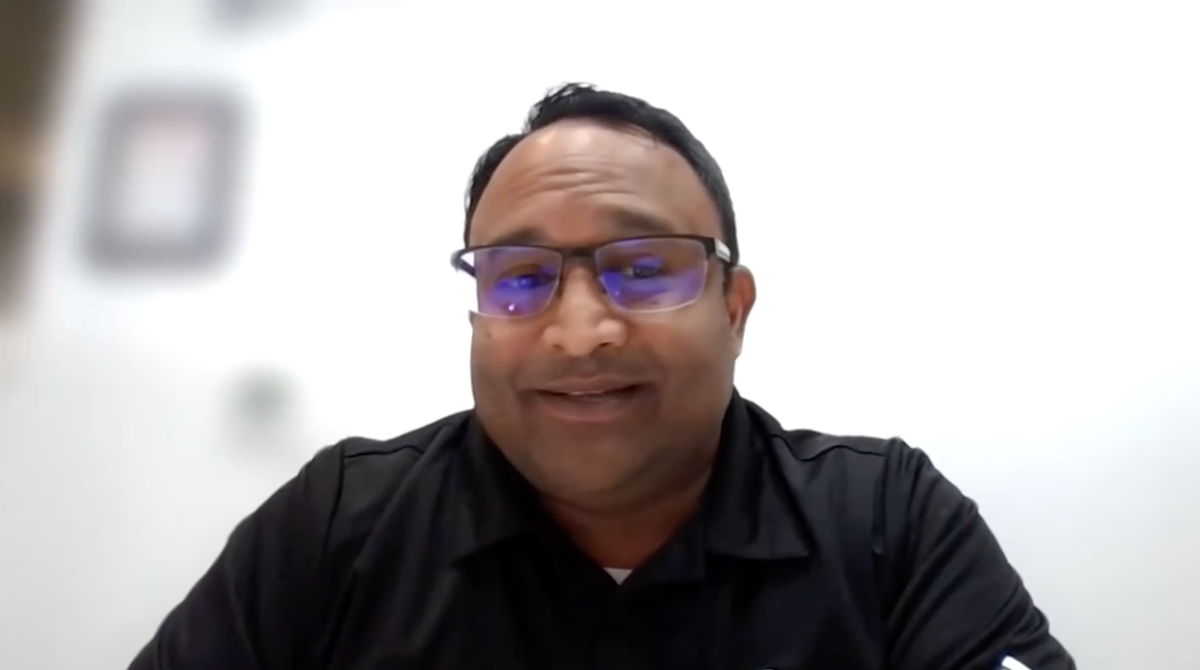Since 1992, Yum! Brands Has Donated 215 Million-Plus Lbs. of Food to Those in Need
Pizza Hut was the first U.S. chain to donate meals on a national level, and now, its parent company Yum! Brands is using those years of experience to ensure its surplus food lands on plates, not in landfills.
Somewhere in Poland, a notification pushes from the brand’s app. The customer who ordered the large Stuffed Crust pepperoni pizza wants thin crust instead. At a KFC in Brazil, it’s the end of the lunch rush hour, and some Original Recipe chicken has gone unsold. Situations like these occur across restaurants around the world.
This surplus food presents an opportunity for Yum! Brands. As the world’s largest restaurant business and parent company of KFC, Taco Bell, Pizza Hut and The Habit Burger Grill, Yum! and its brands’ franchisees are uniquely positioned to donate unused product to food banks and charities on a global scale. This not only feeds those in need but also keeps food out of landfills, curbing carbon emissions.
“We’re helping to solve hunger issues in various markets and impact climate change. It’s rewarding work,” Maria Echeverri, KFC Latin America and Caribbean food donation lead, said. “And we’re proud of the progress we’ve made. Since Yum! created Harvest in 1992, the company has donated over 215 million lbs. of food to more than 5,000 charity partners in 25-plus countries, which is the equivalent of removing over 19 million trash bags from landfills. But we still know there is more work to be done.”
Harvest, which Echeverri mentioned, is run by Food Donation Connection (FDC). It started in 1992 and was, at the time, the only such program in the United States, making Pizza Hut the first national chain to donate its surplus food. Bill Reighard, a former Pizza Hut/PepsiCo executive who left the company, founded FDC, and the company now partners with other restaurant chains. Among them is KFC, which began its Harvest program in the United States in 1999, marking 2024 as the partnership’s 25th anniversary.
Harvest also works as a retention tool. In Trinidad and Tobago, one of KFC’s most frequented markets, franchisee Roger Rambharose, vice president of Prestige Holdings Limited, saw the program as an opportunity to connect with his Generation Z team members, who were looking for a sense of purpose in their work. So, his team identified seven local charities and mapped out a weekly collection process. They bought a freezer truck to transport the surplus food in the hot Caribbean weather and branded the vehicle with Harvest messaging to visually alert the community of the program. It’s been so successful, Rambharose has seen an immediate increase in team member retention (watch him talk about it in the video above).
Another success story is in the U.K. where KFC and its franchisees donates its surplus food through the biggest food redistribution program in the country, Fareshare. Since partnering with them in 2021, its food donation has grown by two-thirds, providing 1 million meals over the past three years and targeting 2 million meals by the end of 2024.
“About half of our restaurants are currently donating their surplus chicken,” Louise Norris, KFC Foundation manager in the United Kingdom and Ireland (UKI), said. “We work every day to increase that amount and have done some pretty fun activations, like a community kitchen in which influencers created recipes using leftover KFC chicken. We want to show our customers that they, too, can put food on plates, not landfills.”
Even Yum!’s test kitchens send unused product to those in need. Taco Bell donates surplus food from its Irvine, California, corporate office and its distribution centers. In Plano, Texas, Jennifer Gilara, who was once a Pizza Hut general manager before running its test kitchen, donated 6,000 lbs. of food to a local homeless shelter in 2023. She has a goal of doubling that this year.
“As the world’s largest restaurant company, we can make a big impact and lead in the food donation space,” Gilara said. “I’m so grateful that we’ve found a solution that has the potential to work in every one of our markets to feed those in our communities.”
Whether it’s Harvest through FDC, food donation through FareShare or another organization, or a direct donation, Yum! Brands will continue to feed those in need, curb greenhouse gas emissions and provide a sense of purpose to team members.





